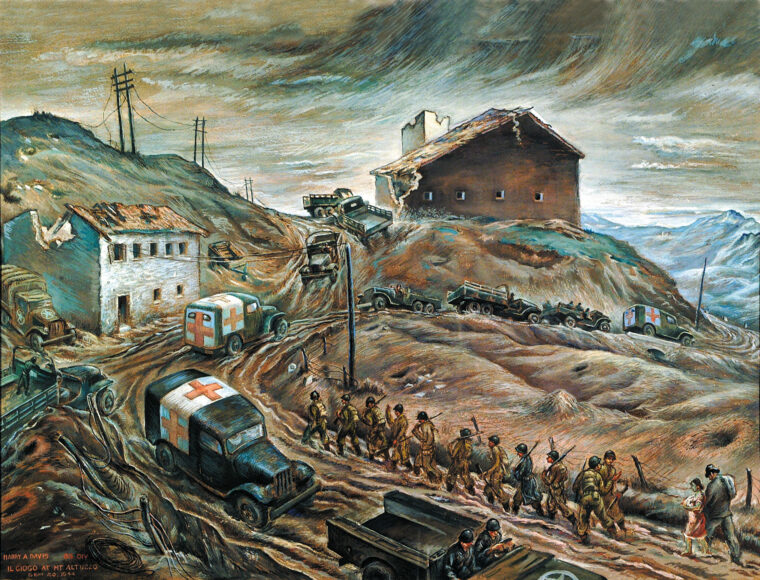
Albert Kesselring
My Battle Up the Boot: Paul McNelis in the Italian Campaign
By Richard A. BerantyThe U.S. 85th Infantry Division was one of the Allied workhorses in Italy during World War II. Read more

Albert Kesselring
The U.S. 85th Infantry Division was one of the Allied workhorses in Italy during World War II. Read more
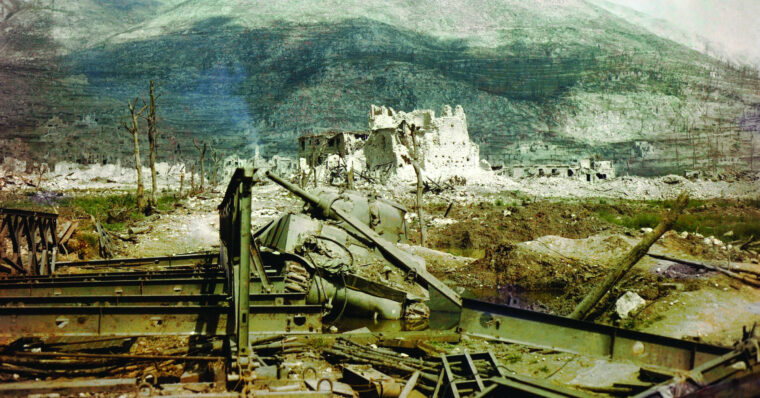
Albert Kesselring
By December 1943, the phrase “sunny Italy” had evolved from being a travel agent’s selling point to becoming an ugly joke for the British and American troops of the Allied Fifth Army, advancing north from Naples to Rome. Read more
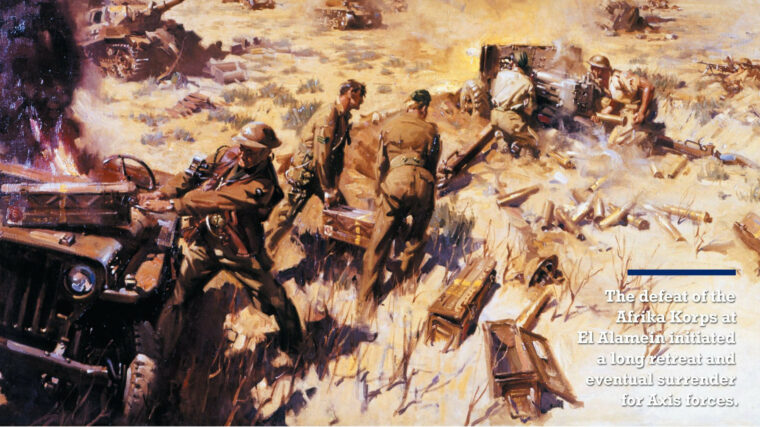
Albert Kesselring
Tobruk, the vital Libyan seaport on the coast of Cyrenaica, fell to General Erwin Rommel and his victorious Afrika Korps in less than 24 hours after an unexpected and devastating air, armor, and infantry attack on June 21, 1942. Read more
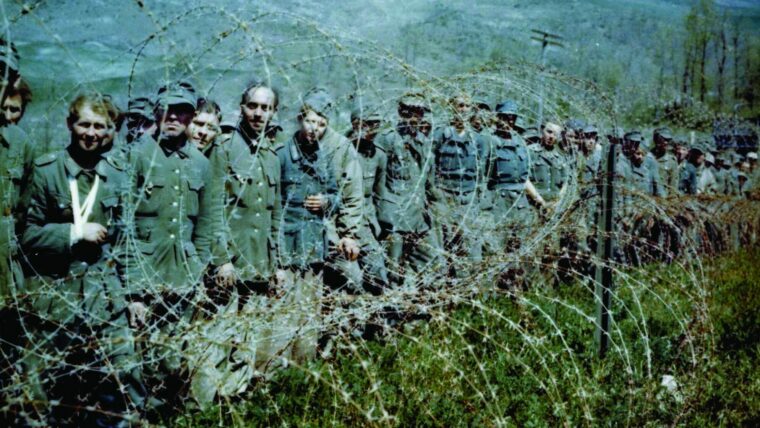
Albert Kesselring
On the morning of Friday, April 13, 1945, three men gathered at a table in L’Espadon of the Ritz Paris over a breakfast of coffee and croissants. Read more
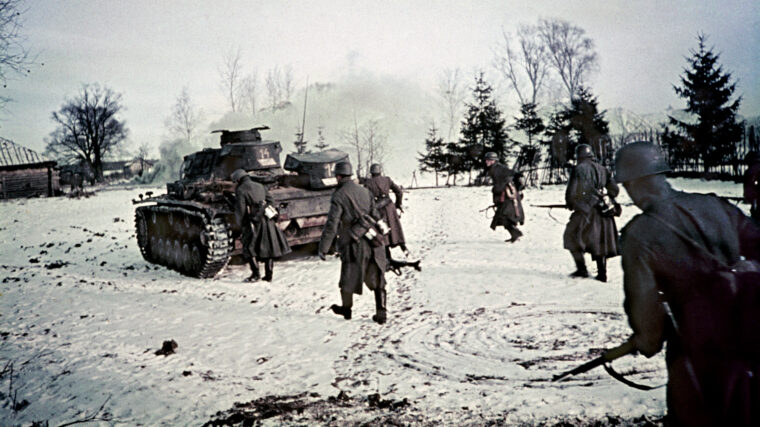
Albert Kesselring
Many consider the Battle of Moscow in late 1941 to be the first turning point of World War II on the Eastern Front. Read more
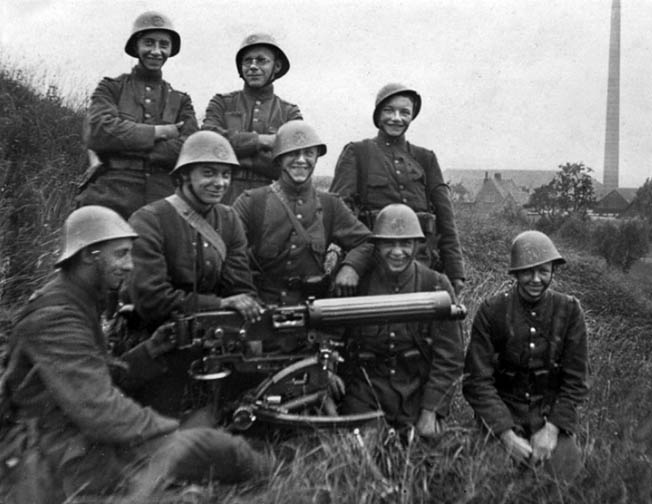
Albert Kesselring
By John W. Osborn, Jr.
When world war engulfed Europe for the second time in a generation, the Netherlands placed its faith in the diplomatic delusion that it could remain neutral like it had during World War I. Read more
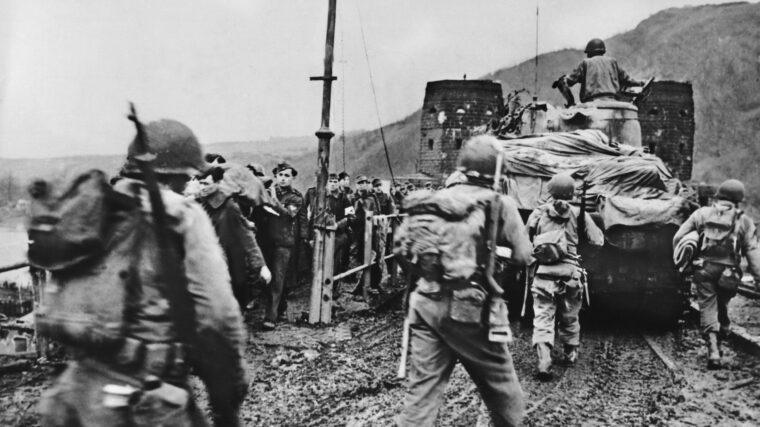
Albert Kesselring
Once they escaped from Nazi-dominated Europe, hundreds of German and Austrian Jews joined the American and British military to help bring an end to the Nazis’ reign of terror. Read more
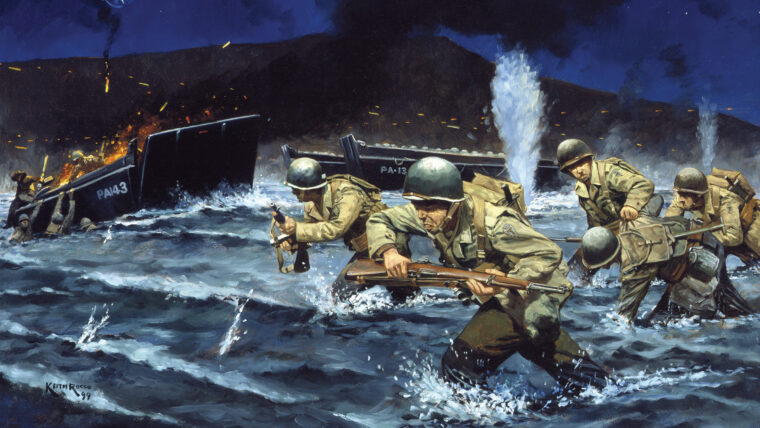
Albert Kesselring
On the morning of September 13, 1943, Col. Gen. Heinrich G. von Vietinghoff, commander of the German Tenth Army, faced a difficult decision. Read more
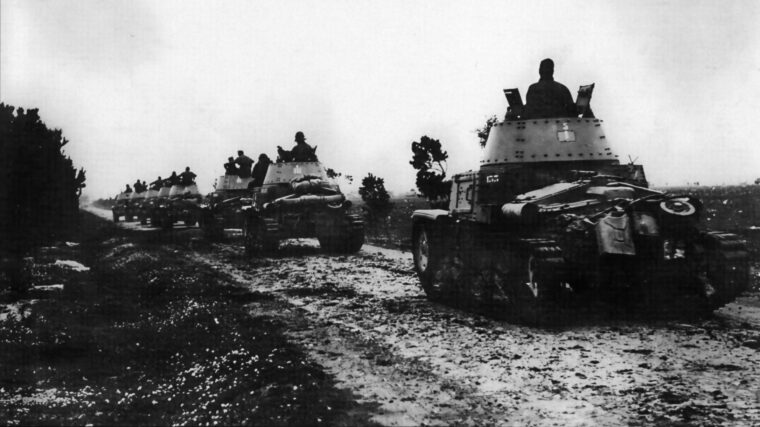
Albert Kesselring
Bradley could have been referring to German General Erwin Rommel. While Rommel was winning the war of desert armor tactics during 1941-1942 in the North African Campaign, he was losing the war of logistics. Read more
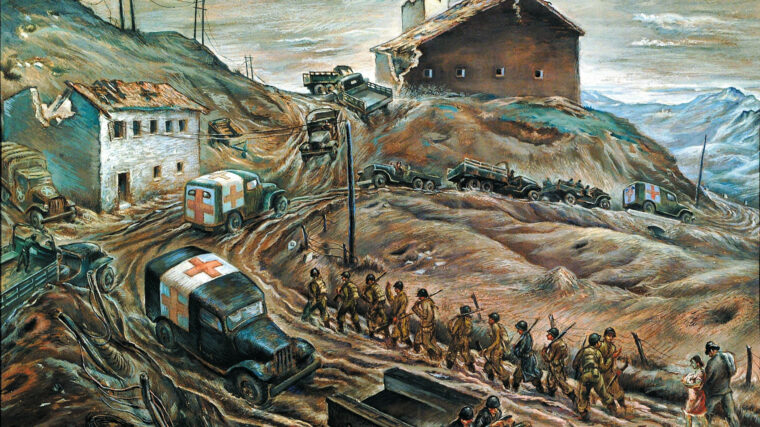
Albert Kesselring
The reason for it was unthinkable. The Gothic Line, the last line of defense in Italy, was necessary, but senior German commanders had not been concerned that it would ever be contested by Allied forces. Read more
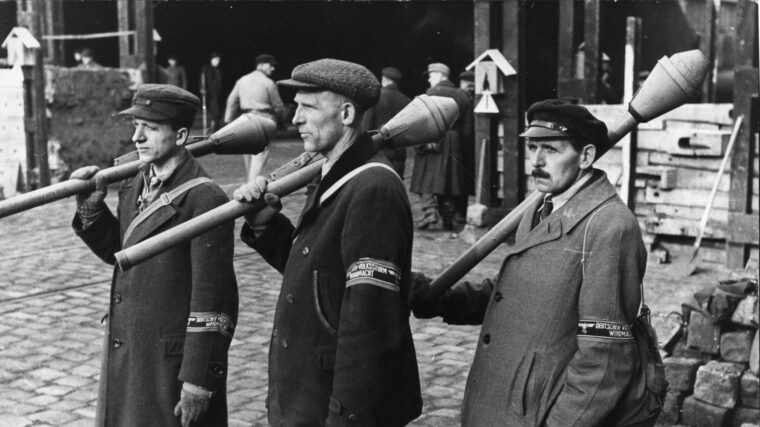
Albert Kesselring
On October 18, 1944—the 131st anniversary of the Battle of the Nations’ victory over Napoleon in 1813—Reichsführer-SS (National Leader) Heinrich Himmler stepped up to a microphone to make a national radio address announcing the formation of the Nazi Party-controlled Volkssturm, or People’s Militia. Read more

Albert Kesselring
As the 450 ships of the Operation Avalanche invasion force approached Salerno on the evening of September 8, 1943, the Allied troops, packed tightly aboard transport vessels, broke into wild celebration. Read more
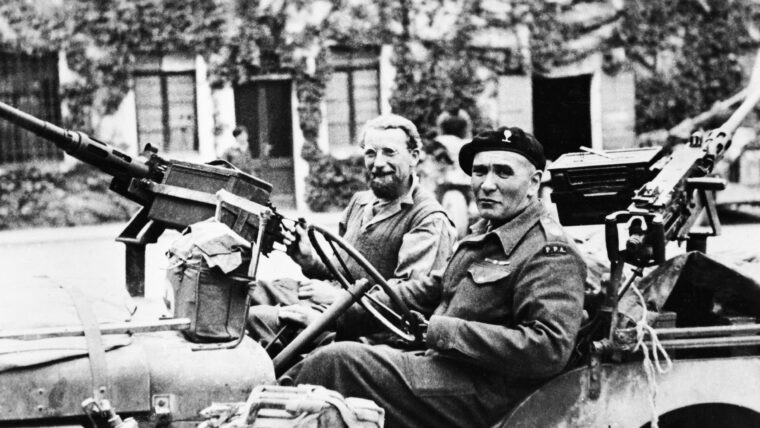
Albert Kesselring
In September 1942, two patrols of armed jeeps and trucks of the Long Range Desert Group (LRDG) raided the German airfield at Barce. Read more
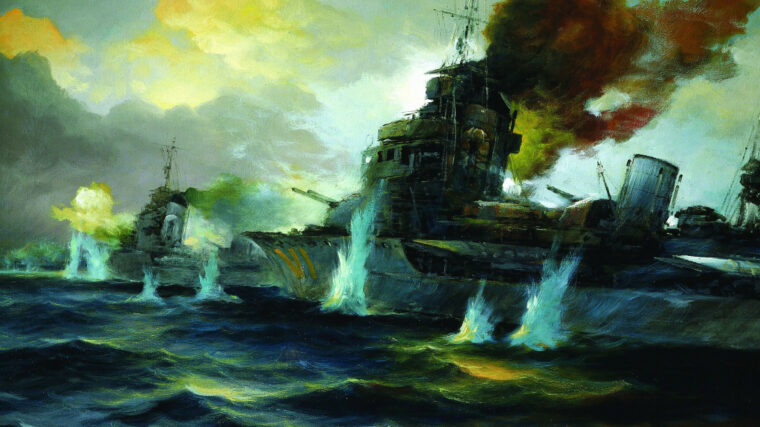
Albert Kesselring
On May 13, 1943, nearly 300,000 Axis soldiers surrendered to the Allies in northern Tunisia. This successful conclusion to the North African campaign led to speculation at the time as to where the Allies would strike next. Read more
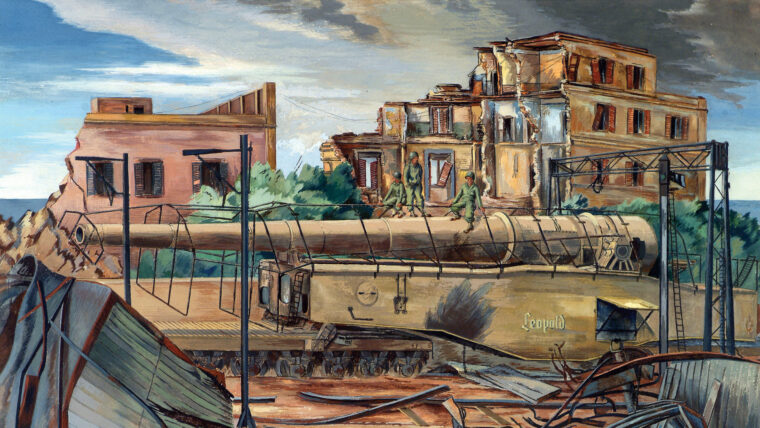
Albert Kesselring
As the last days of 1943 slipped away, World War II in Italy ground to a miserable stalemate. Read more
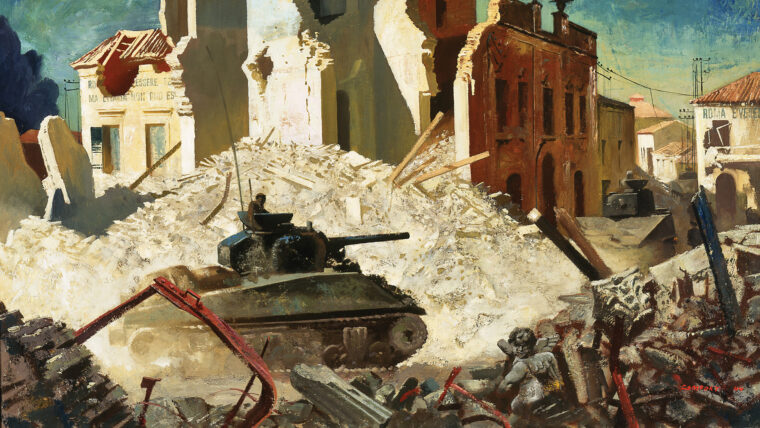
Albert Kesselring
By the autumn of 1943, the Allied armies fighting in Italy had discovered that Winston Churchill’s description of Italy as the “soft underbelly of Europe” had been a falsehood of monumental proportions. Read more
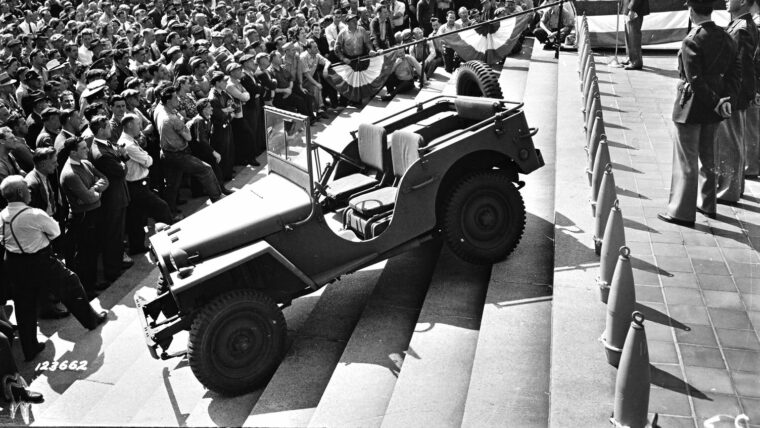
Albert Kesselring
General of the Army George C. Marshall called it America’s greatest contribution to modern warfare. General Dwight D. Read more
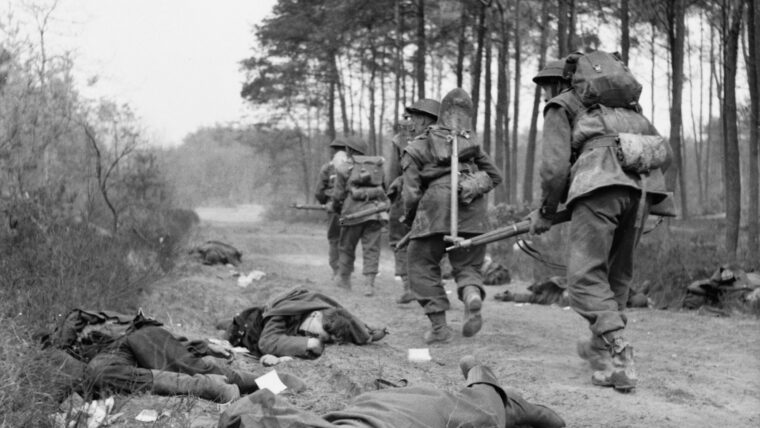
Albert Kesselring
“I am busy getting ready for the next battle,” Field Marshal Sir Bernard Law Montgomery wrote his son David in early March 1945. Read more
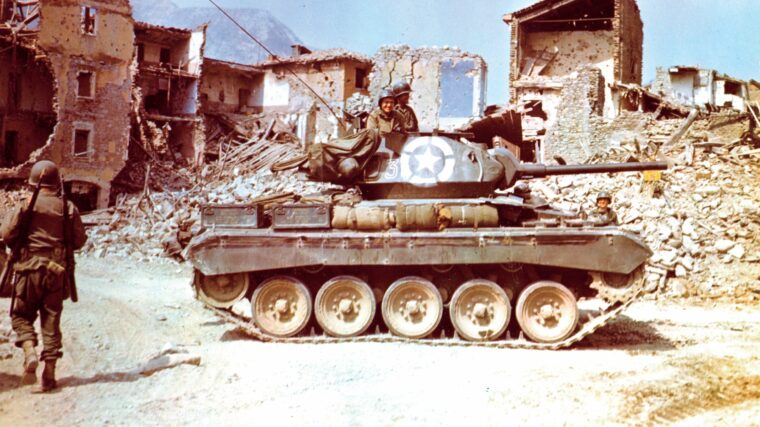
Albert Kesselring
For the Allied armies in Italy, the final winter of World War II was one of planning, replenishment, and the continuing effort to make existence in a war-ravaged land in the midst of snow and ice as bearable as possible. Read more
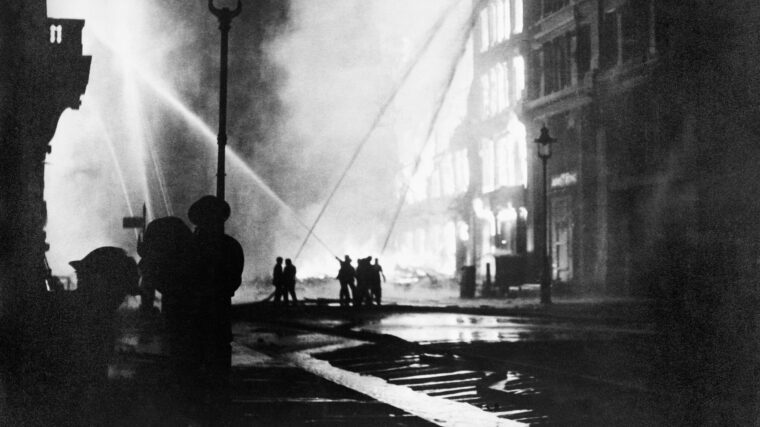
Albert Kesselring
First, there was a faint drone, with black specks visible in the sunny sky. Then the drone grew into a thunder, and hundreds of bombers appeared over London. Read more